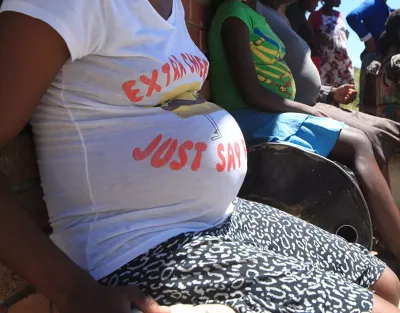15% of Nigerian girls aged 15-19 are mothers or pregnant – FG
The Federal Government has voiced alarm over a troubling statistic: 15% of Nigerian girls between the ages of 15 and 19 are either mothers or currently pregnant.
This underscores the urgent need to address adolescent reproductive health and gender inequality.
This concerning figure was revealed by the Minister of Women Affairs and Social Development, Imaan Sulaiman-Ibrahim, during the launch of Nigeria’s first-ever National Policy on Menstrual Health and Hygiene Management (MHHM).
Represented by the ministry’s permanent secretary, Maryam Keshinro, the minister also shared that over 7.3 million adolescent girls and women in Nigeria suffer from undernutrition, and 55% battle anaemia. She linked these conditions, in part, to poor menstrual hygiene and limited access to affordable sanitary products.
READ ALSO: NAPTIP rescues 9 pregnant women from Abuja baby factory
Describing the new policy as a “milestone,” Sulaiman-Ibrahim emphasised the need to normalize menstruation, calling it “a normal biological process that should never be a source of shame, stigma, or economic hardship.”
She also praised President Bola Tinubu’s administration for approving waivers on sanitary towels, a move she called a significant step toward tackling public health and gender challenges.
The minister stressed the importance of ensuring that menstruation does not hinder the rights, opportunities, or well-being of women and girls, especially since those aged 15 to 49 make up 25–30% of Nigeria’s population.
“It is critical to ensure that menstruation does not stand as a barrier to any woman or girl’s development,” she said.
READ ALSO: Alarm bells ring as teenage pregnancy rates soar
Fifi Ogbondeminu, the acting country representative of Population Services International (PSI) Nigeria, echoed the minister’s sentiments, advocating for menstrual health to be viewed as a human rights and development issue.
She called the new policy a vital step toward addressing menstruation “with dignity, empathy, and urgency,” emphasising that solving menstrual health challenges is key to advancing gender equality and improving the lives of millions of Nigerian women and girls.
Follow the Neptune Prime channel on WhatsApp:
Do you have breaking news, interview request, opinion, suggestion, or want your event covered? Email us at neptuneprime2233@gmail.com





